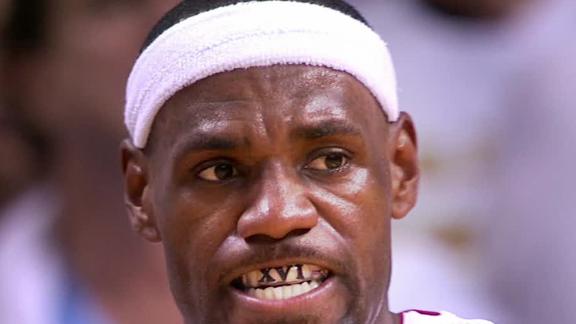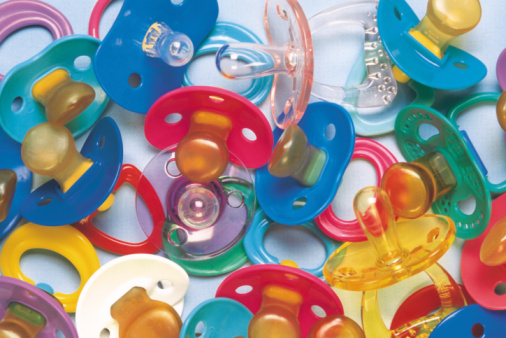
As most of you know, Dr. Gulati was expecting a bouncing baby boy, and Liam has finally arrived! Born April 14th, 8lbs 3oz., and 21.5 inches long, Dr. Gulati and her husband are loving being new parents! Dr. Gulati will be returning from Maternity Leave on June 12, and is excited to see all of her patients' smiling faces!


Mouth guards, also called mouth protectors, help cushion a blow to the face, minimizing the risk of broken teeth and injuries to your lips, tongue, face or jaw. They typically cover the upper teeth and are a great way to protect the soft tissues of your tongue, lips and cheek lining. Knowing how to prevent injuries like these is especially important if you participate in organized sports or other recreational activities.
Studies show that athletes are 60 times more likely to suffer harm to the teeth if they’re not wearing a mouth guard. While collision and contact sports, such as boxing, are higher-risk sports for the mouth, you can experience a dental injury in non-contact activities too, such as gymnastics and skating. According to the ADA, an American Association of Orthodontists survey found that 84 percent of children do not wear mouth guards while playing organized sports because they are not required to wear them. Although other protective materials, such as goggles, helmets, shoulder pads or shin guards are required in order to participate, mouth guards sometimes are not. But not only do mouth guards save teeth; they help protect the jaw as well.
The National Youth Sports Foundation for the Prevention of Athletic Injuries, Inc. reports several interesting statistics. Dental injuries are the most common type or orofacial injury sustained during participation in sports. Victims of total tooth avulsions who do not have teeth properly preserved or replanted may face lifetime dental costs of $10,000 - $15,000 per tooth, hours in the dentist's chair, and the possible development of other dental problems such as periodontal disease.

There are three types of mouth guards:
Custom-fitted. These are made by Dr. Krieger for your child personally. They are more expensive than the other versions, but because they are customized, usually offer the best fit.
Stock. These are inexpensive and come pre-formed, ready to wear. Unfortunately, they often don’t fit very well. They can be bulky and can make breathing and talking difficult.
Boil and bite. These mouth protectors can be bought at many sporting goods stores and drugstores and may offer a better fit than stock mouth protectors. They are first softened in water (boiled), then inserted and allowed to adapt to the shape of your mouth. These are ideal for children who are exchanging baby teeth with permanent teeth who may need several different mouth guards for proper fit throughout the season.
A properly fitted mouth guard may be especially important for people who wear braces . A blow to the face could damage the brackets or other fixed orthodontic appliances. A mouth guard also provides a barrier between the braces and your cheek or lips, limiting the risk of soft tissue injuries.
Taking Care of Your Mouth Guard:
A mouth guard must be taken care of and cleaned properly like any other appliance that is utilized to help your teeth. It should also be replaced once it becomes worn out because it will no longer offer optimal protection.
Here are some tips on how to keep your mouth guard clean and in good condition:
Because of the chance of orthodontic problems, the American Academy of Pediatric Dentistry recommends weaning a child from pacifier use by age 3. While we prefer the pacifier to a thumb, here’s a great article with different approaches that can reduce stress for kids and parents.

Check out this interesting article in the Washington Post.

The American Dental Association (ADA) recently published this great article about foods that are damaging to your teeth:

Losing a baby tooth is the ultimate sign of becoming a big kid. In fact, it's probably more important to 5- and 6-year-olds than learning to read, write, or ride a bike. Kids competitively track how many teeth their classmates have lost, open their mouths to show off the progress, and endlessly trade tooth stories.
Baby teeth loosen as their roots dissolve, clearing the way for permanent teeth, explains George White, D.D.S., a professor of pediatric dentistry at Tufts University, in Boston. The bottom two front teeth are usually the first to go, followed by the top two in front.
Most kids have their first loose tooth at age 5 or 6, but it can happen when they're as young as 4 or as old as 8. (Children whose baby teeth erupted early usually lose them before late teethers do.) It generally takes a few months from the time a tooth becomes loose until it falls out. Teeth tend to fall out on their own -- becoming stuck in food or even getting swallowed, which Dr. Krieger say is harmless. But loose teeth can also be stubborn, sometimes hanging by a thread for weeks. Is it okay for kids to wiggle them free?
Absolutely. "It's best to encourage your child to wiggle the tooth out on his own," explains Gerald Ferretti, D.D.S., a professor of pediatric dentistry at the University of Kentucky, in Lexington. "If it's extremely loose, you can take a tissue and try to rotate the tooth," Dr. White adds. If there's no root left, you should be able to pull it out easily. But don't force it, and never tie it to a string and yank -- if the root is only half dissolved, it could break and become infected.
Gummy Grins
When a baby tooth falls out, the big tooth is usually underneath the gums, waiting to erupt. Your child's permanent teeth will have ridges on the biting edges at first (they haven't been worn down yet through chewing), and they'll be slightly less white than his baby teeth were. "As more adult teeth replace baby teeth, the difference in color becomes less noticeable," says Fred S. Ferguson, D.D.S., a professor of pediatric dentistry at the State University of New York at Stony Brook and founder of aboutsmiles.org.
Don't worry if your child's teeth look a little too big for his face; his head will keep growing, but his teeth won't. However, if the teeth seem crowded, you may want to talk to your dentist about arranging a consultation with an orthodontist.
Some kids develop two rows of teeth -- often called shark's teeth -- when the permanent teeth come through before the baby teeth have fallen out. The new teeth will push forward on the baby teeth, usually causing them to fall out within a few weeks, Dr. Ferretti says. Consult your dentist if the double row lasts for longer than three months.
Teething Pain
The process of losing baby teeth is normally painless, but if the edge of a baby tooth cuts into your child's gums, your dentist may encourage him to wiggle it more vigorously. At the same time that your child's baby teeth are becoming loose and falling out, his six-year molars are coming in. The gums can look swollen, and some kids may complain that they hurt. Acetaminophen, ibuprofen, or topical analgesics can help ease the discomfort.
Although your child may insist that it's hard to bite or chew with loose or missing teeth, it's important for her to maintain a healthy diet. If she won't chew, serve her vegetable soup, pureed fruits, and other healthy soft foods, Dr. White suggests. Make sure she continues to brush her teeth twice daily, and help her with flossing.
Late Losers
If your child has not lost any teeth by the time he turns 7, talk to your dentist. Most likely there won't be a problem, but the dentist may suggest taking X rays to make sure that all the teeth are under the gum. In fact, there's actually an advantage to getting permanent teeth late, Dr. White says. "The teeth will be harder as a result of remaining in the jaw longer, and they'll be more resistant to cavities."
That won't matter to your child, though, who may feel like the "baby" in his class. (Some teachers even fuel such anxiety by making a chart of how many teeth students have lost.) You might say to him, "Everyone's different. Just like some kids are taller than others, some kids lose their teeth earlier or later. Your teeth will come out when it's right for your mouth -- and if they come out before, then it's not right for your mouth." Your child might also enjoy reading books such as Tabitha's Terrifically Tough Tooth, by Charlotte Middleton (Penguin Putman, 2001), or Arthur's Tooth, by Marc Brown (Little Brown, 1986).
Sooner or later, though, all kids will get to put a tooth under their pillow. Even if they were a bit skeptical about the Tooth Fairy beforehand, they usually become believers when the time comes-and may even be eager to go to bed early.
For any additional questions or concerns, please contact Atlanta Pediatric Dental Specialists.
Copyright © 2001 Candy Schulman. Reprinted with permission from the December 2001 issue of Parents magazine.
At Atlanta Pediatric Dental Associates, we see many of our patients through their teenage years. Typically, when you graduate from high school, you also graduate from our practice. As children hit adolescence and begin to care for their own teeth, Dr. Krieger review the following tips for a healthy teenage smile.
More often than ever, teenagers are reaching for soft drinks to quench their thirst, but the acids and sugars they contain are eating away at their delicate tooth enamel. It’s unlikely that teens will completely stop drinking sodas, so Dr. Krieger recommend that they try to reduce the amount they drink, and rinse their mouths with water after drinking sodas, and brush and floss often.
Piercing the tongue and mouth has been popular among teens for years, despite the scary stories of problems from their piercings. These piercings can cause teens to chip their teeth while eating, talking, and sleeping.
It seems like teens today are living on fast food and nutrition bars. Busy teens may have a lot to do, but they also have a lot to lose by not eating a well-balanced diet. In addition to harming their overall health, the habits can hurt their dental health. But rather than let bad foods eat away at their teeth, teens need to develop the following good habits:
Eat healthy snacks, like veggies, fruits, and low-fat cheese.
Keep a travel-sized toothbrush and toothpaste in a backpack, locker, or handbag so it’s always convenient to brush.
Chew sugarless gum after eating to help clean the mouth.
Drink water all day to rinse away food debris and bacteria.
Contact sports are popular with teenagers, but they may not be aware that such sports can cause injuries to the teeth, mouth, and jaw. Athletic teens can protect their smiles by getting a mouth guard to wear during sports.
Most teenagers want beautiful, whiter smiles. While some bleaching products can enhance a teenage smile, always speak to Dr. Kriger before your teen starts to whiten their teeth. Sometimes, whitening products can be detrimental to teen teeth and cause the teeth to be extremely sensitive to hot and cold things.

Did you know that almost all adult smokers have tried smoking before the age of nineteen? In all likelihood, an individual who abstains from smoking throughout the teenage years will never pick up the habit.
Aside from being a socially undesirable habit, smoking can stain your adolescent's teeth, increase their risk of developing periodontal disease, and reduce smelling and tasting abilities. It is also the leading cause of oral cancer. At Atlanta Pediatric Dental Specialists, Dr. Krieger encourage children and adolescents to abstain from all forms of tobacco use.
Is smokeless tobacco less dangerous for teens?
Tobacco use in any form brings the oral region into direct contact with carcinogens (cancer causing agents). These carcinogens and other harmful chemicals cause irreparable damage to the child’s oral health.
Smokeless tobacco has been proven to deliver a greater concentration of harmful agents into the body, and to be far more addictive than other forms of tobacco. One snuff of tobacco has approximately the same nicotine content as sixty regular cigarettes. In addition, smokeless tobacco causes leukoplakias in the mouth, which are dangerous pre-cancerous lesions.
What are the signs of oral cancer?
Oral cancer can be difficult to detect without the aid of the dentist. In some cases, oral cancer is not noticeable or even painful until its later stages. Parents of tobacco users must be aware of the following symptoms:
How can I stop my child from using tobacco?
There are several ways to discourage children and adolescents from using tobacco products. First, talking to the child personally about the dangers of tobacco use (or asking Dr. Krieger to talk to the child) has proven an effective preventative strategy. Second, parents should lead by example. According to research studies, children of non-smokers are less likely to pick up this dangerous habit. Third, monitor the child closely. If you think your teenager is using tobacco in any form, please let us know when your child is at Atlanta Pediatric Dental Specialists so that our doctors can screen your adolescent and provide proper education about the harmful effects of tobacco use.
